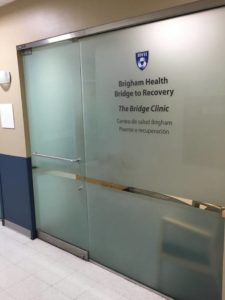 In early 2018 experts in the Department of Psychiatry at Brigham and Women’s Hospital (BWH) will open a new clinic that will bridge patients with substance abuse disorders being discharged from the hospital and emergency department to the long-term care they need.
In early 2018 experts in the Department of Psychiatry at Brigham and Women’s Hospital (BWH) will open a new clinic that will bridge patients with substance abuse disorders being discharged from the hospital and emergency department to the long-term care they need.
“The new clinic will provide rapid and low-threshold access to addiction treatment including medications like buprenorphine. It will give us the ability to provide medical and psychiatric care and offer recovery coaching and individual and group treatment until patients can be successfully transitioned to longer-term care in the community,” explains psychiatrist Joji Suzuki, MD, who will co-lead the clinic with colleague David A. Gitlin, MD
The clinic expands the armamentarium of addiction services available at BWH. “In addition to our existing programs including detox, partial hospital care, outpatient services, and inpatient consultations, we are building the clinic to provide comprehensive care for patients,” he says.
The clinic team will include multidisciplinary experts from throughout BWH. “This is an effort that includes not only psychiatry but specialists in internal medicine, hospitalists, emergency medicine, obstetrics, cardiology, and infectious disease. We want to be able to continue medications like buprenorphine and extended-release naltrexone,” explains Dr. Suzuki.
Any substance abuse patient will receive care from the clinic, but there will be a focus on those addicted to alcohol and opioids, have infectious complications from injection drugs, or are pregnant or recently gave birth.
In the first year, Dr. Suzuki envisions most patients will come to the clinic from inpatient floors and the emergency department. “Our inpatient addiction consult team will play a big role in connecting patients from the inpatient floors and ED to the bridge clinic. As we expand, we will include primary care and other patients as well,” he says.
“We want to provide basic medical and psychiatric care as well as individual and group treatment,” says Dr. Suzuki. “It also is important to provide patients with all of the resources they need so our team will include a resource specialist and a recovery coach to further help them as they recover.”